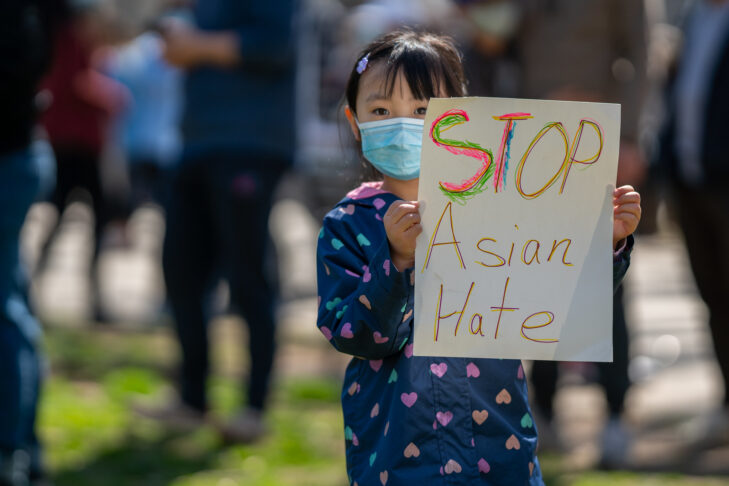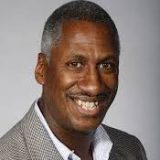May is Asian American and Pacific Islander Heritage Month—and it is occurring at a time when the Asian community is experiencing a spike in hate crimes, and the Jewish community is experiencing historic levels of antisemitism. It also feels like there is an epidemic of Blacks being killed in police officer-involved shootings. It comes from seeing people as the other—not as a family member.
Years ago, I had the opportunity to work with Mother Teresa in Calcutta, India. It is only after my most recent experience with the Asian community that I’ve come to understand her. St. Teresa didn’t see people in terms of their differences, eg. Hindu, or Muslim, or as someone who needed to be saved. She first saw people as children of God, suffering and in need of help.
St. Teresa’s evangelistic efforts were often criticized. It’s not clear she ever converted anyone to Christianity. Rather, she lived out the adage: “Preach the gospel at all times. When necessary, use words.”
My ongoing journey started following the Tree of Life synagogue shooting. I attended my first Shabbat as a show of solidarity. I kept attending. In October, it will have been three years. When the killings took place in Atlanta—primarily against Asians—I again felt the need to do something. Some people had bought flowers, posted their support on Facebook or attended rallies. Others supported Asian businesses, eating Chinese or Thai takeout, or getting a massage from an Asian massage therapist.
I did three things.
First, I brought eight boxes of food to a Buddhist temple. For each life lost, I explained to the monk, I offered a box of food in their memory. After a brief conservation, the monk told me he accepted my offering “on behalf of the monks and nuns of the temple.” I felt a sense of joy and left.
The following week, I got eight boxes of food—and this time I went to eight different Buddhist temples. At each, I gave them a box of food with a note that thanked the Asian community for all that it had contributed to America and the world. In my note, I apologized for the hate and injustice Asian people are experiencing and asked them to accept this offering in the memory of the lives lost to hate and injustice.
In preparation for the last step, I read about the individuals whose lives were lost. Grandmothers, mothers, wives, parents. Admittedly, that was not the first thing that came to mind when I heard that Asian women who worked at a spa were killed. With this knowledge, I wrote a lament to God as a way of expressing how I felt about these deaths. I imagined that God still loved us but must be incredibly angry with us for not stopping the continued killings of our brothers and sisters.
Finally, I went to a Buddhist monastery and spent 80 minutes in prayer; 10 minutes for each life lost. My thought: Certainly, each life was worth 10 minutes. I prayed for each of the families touched by this tragedy, for Asian countries and for every Asian person I could remember by name. I apologized for the wrongs suffered at the hands of Americans and Christians. I prayed scriptures and promises from the Christian Bible and I prayed that Christians in every Asian country would act as a true reflection of God.
Upon completion of the last act, I reflected on my experience. I had learned the following:
- It’s easy to see an external problem, such as gun safety legislation, and racist individuals. But we don’t spend enough time in self-discovery to understand our own racist, sexist biases, as well as our complicity. We make judgments and take actions based on ignorance.
- We fear the unknown and that which is different. We are unwilling to take the first step to learn about the children of God we don’t yet know. We see differences before we see the common humanity.
- Reflecting on our past wrongdoings, mistakes and successes—both as individuals and communities—is all too important and too frequently overlooked. Without that ability, we simply repeat our mistakes.
- What I did might be misunderstood or misjudged by fellow Christians. Because I am comfortable in my relationship with God, my identity as a Christian doesn’t require me to feel superior or inferior to others. I can respect others without compromising what I believe. When I was in the Buddhist temple, my God was with me 139:7-8.
- Being a stranger, in terms of language (eg. Chinese and Vietnamese), ethnicity and religion, reminded of my Judeo-Christian teaching to be kind to the stranger.
- As children, we are to learn how to play well with others. As adults, we are to be good neighbors (The Great Commandment). We need to continually remember this.
- I gained far more than I gave. They got a box of food and knowledge that someone cared; I gained insight, made new friends and took another step in my journey to be closer to God.
During my journey, I have had to come to terms with my own racism. It is not a racism of violent attacks or slurs, but rather one of ignorance, implicit bias and complicity. Racism includes not seeing or hearing people and treating them like they aren’t there. Before this, I had not done anything in response to Asian hate or discrimination, and I was comfortable with my ignorance. I did not know the majority of the people in the world are Asian, or even that the Dalai Lama was Buddhist.
When I saw the statues at the temple, all I could think of was paganism—in the same way that Martin Luther felt about the Jews and demanded that synagogues and schools be destroyed.
Visiting eight different Buddhist temples was important. Some Buddhists wore robes, while others wore suits and ties and skirt suits. The smallest temple was in a house, while the largest was led by a woman with 25,000 members. The Buddhists were welcoming, showed me around, answered questions and invited me to participate in their worship. I returned, participating in the receiving of the Dao, in an ancestor memorial, incense offering and meditation services. As a Black Christian, I’ve felt less welcome in many white churches.
My spiritual journey in Judaism was analogous. Then, I knew little about Jews as a people and their contribution to America and the world. I had not been to a Jewish service even though there are numerous synagogues around me and I know numerous Jewish people. I had to come to terms with Christians’ antisemitic behavior toward Jews and how Christians made judgments about Jews from a place of ignorance and acted on those beliefs. Because Jews were different, in terms of religious, dietary, clothing and other practices, we felt comfortable judging them, which resulted in a history of forced conversions, scapegoating and hatred. I also felt understanding and practicing Judaism helped me be a better Christian. It was unfortunate that it took the loss of Jewish lives for me to make the effort to understand another community of people.
The mass shootings in America are a moral disgrace, and we must do something about it. I do not want the memory of lives lost to be associated with hate and violence and guns. I do not want my efforts to be limited to gun legislation. I can take efforts to better myself. I believe that if we all worked to make each of us and the world better, both would be. I can’t help but think that perhaps if someone had reached out and heard the killer, lives might have been saved. Perhaps our acts of kindness toward the other might prevent a killing by helping meet their unmet needs.
We won’t know until we try. Anyone can make a difference, and everyone can try.
This post has been contributed by a third party. The opinions, facts and any media content are presented solely by the author, and JewishBoston assumes no responsibility for them. Want to add your voice to the conversation? Publish your own post here. MORE



